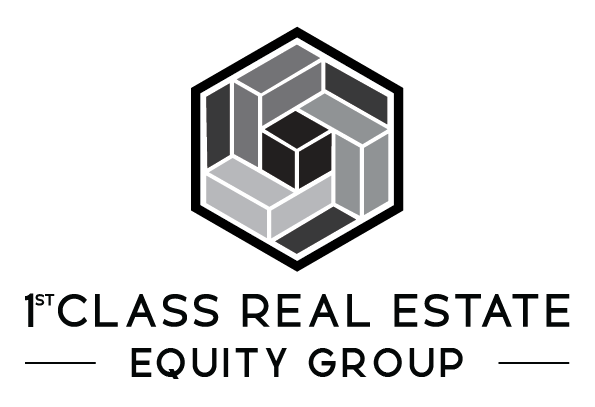1. Fix and Flip:
- Strategy Overview: Fix and flip investing involves purchasing distressed properties, renovating them to increase their value, and then selling them for a profit within a relatively short timeframe.
What You Need
- Capital: You’ll need access to financing or capital to purchase properties, fund renovations, and cover holding costs such as property taxes, insurance, and utilities.
- Renovation Skills or Team: Proficiency in renovation or the ability to assemble a reliable team of contractors, tradespeople, and professionals to handle renovations and repairs.
- Market Knowledge: Understanding local market trends, property values, and buyer preferences to identify potential investment opportunities and estimate renovation costs accurately.
2. Buy and Hold:
- Strategy Overview: Buy and hold investing involves acquiring rental properties with the intention of holding onto them long-term and generating rental income and appreciation over time.
What You Need:
- Financing:Access to financing options such as conventional mortgages, private loans, or portfolio loans to purchase investment properties.
- Property Management Skills or Team: Proficiency in property management or the ability to hire a reputable property management company to handle tenant screening, leasing, maintenance, and rent collection.
- Cash Flow Analysis: Conducting thorough cash flow analysis to ensure that rental income covers operating expenses, mortgage payments, and provides a positive cash flow
- Market Research: Researching rental market trends, vacancy rates, and rental demand in target neighborhoods to identify high-potential rental properties
3. Real Estate Investment Trusts (REITs):
- Strategy Overview: Real Estate Investment Trusts (REITs) are investment vehicles that allow investors to pool their money to invest in a portfolio of income-generating real estate properties, such as commercial properties, apartments, or industrial complexes.
What You Need:
- Investment Capital: Capital to purchase shares or units of publicly traded or private REITs, which are typically available through brokerage accounts or investment platforms.
- Diversification: REITs offer diversification benefits by investing in a broad range of real estate assets across different sectors and geographic regions.
- Risk Tolerance: Understanding the risks associated with REIT investing, including market volatility, interest rate fluctuations, and economic downturns
3. Real Estate Investment Trusts (REITs):
- Strategy Overview: Real Estate Investment Trusts (REITs) are investment vehicles that allow
investors to pool their money to invest in a portfolio of income-generating real estate properties,
such as commercial properties, apartments, or industrial complexes.
4. Real Estate Crowdfunding:
- Strategy Overview: Real estate crowdfunding platforms enable investors to pool their funds
with other investors to finance real estate projects, such as development projects, fix and flip
ventures, or rental properties.
What You Need:
- Investment Capital: Capital to invest in real estate projects through crowdfunding
platforms, which may require minimum investment amounts or accredited investor
status.
- Due Diligence: Conducting thorough due diligence on crowdfunding platforms and individual investment opportunities to assess risk, projected returns, and investment
terms.
- Understanding of Regulations: Familiarity with securities regulations and compliance
requirements for investing in real estate crowdfunding offerings.
Wholesaling:
- Strategy Overview: Wholesaling involves identifying distressed properties, entering into contracts with sellers, and assigning those contracts to investors or end buyers for a fee, without
actually purchasing or renovating the properties.
What You Need:
- Marketing Skills: Marketing skills to identify and source distressed properties through
direct mail, online marketing, networking, and other strategies.
- Negotiation Skills:
Negotiation skills to secure favorable purchase contracts with
distressed property sellers and build relationships with investors or end buyers
- Understanding of Legalities: Understanding of contract law and real estate regulations
to ensure compliance with legal requirements and avoid potential liabilities.
6. Creative Financing
Seller Financing:
- Overview: Seller financing, also known as owner financing, occurs when the
seller of a property agrees to finance a portion or all of the purchase price for the
buyer. Instead of obtaining a traditional mortgage from a bank, the buyer makes
regular payments to the seller over an agreed-upon period
- What You Need:
To initiate a seller financing arrangement, you’ll need a motivated seller who is willing to consider financing the purchase of their
property. Additionally, you’ll need to negotiate the terms of the financing, including the interest rate, repayment schedule, and any other conditions.
Lease Options:
- Overview: A lease option, also known as rent-to-own or lease-purchase, allows a tenant to lease a property with the option to purchase it at a predetermined price within a specified timeframe. The tenant pays an upfront option fee and monthly rent, part of which may be credited toward the purchase price if they
exercise their option to buy.
- What You Need:
To offer a lease option to potential buyers, you’ll need to own or have control over the property and be willing to enter into a lease option agreement. Additionally, you’ll need to determine the purchase price, option fee,and terms of the lease agreement
Subject-To Transactions:
- Overview: In a subject-to transaction, the buyer purchases a property subject to the existing mortgage or financing in place. The buyer takes over the seller’s existing loan payments and assumes ownership of the property, but the mortgage remains in the seller’s name
- What You Need:
To engage in a subject-to transaction, you’ll need to find a seller who is willing to transfer ownership of their property while leaving the existing mortgage in place. Additionally, you’ll need to conduct thorough due diligence to assess the terms of the existing mortgage and ensure that the transaction is legally compliant.
Hard Money Loans:
- Overview: Hard money loans are short-term, asset-based loans secured by real estate. Unlike traditional mortgage loans, hard money loans are typically provided by private investors or companies and are based on the value of the property rather than the borrower’s creditworthiness
- What You Need:
To obtain a hard money loan, you’ll need to identify a reputable hard money lender who is willing to finance your real estate investment. You’ll also need to provide collateral in the form of real estate, as well as a solid investment strategy and exit plan to reassure the lender of the investment’s viability.
In Conclusion:
As a new real estate investor, exploring different investment strategies can open up a world of opportunities for building wealth and achieving financial freedom. Whether you’re interested in fix and flip, buy and hold, REITs, crowdfunding, wholesaling, or creative financing, each strategy offers unique advantages and considerations to evaluate. By understanding the requirements and considerations for each strategy and conducting thorough research and due diligence, you can embark on your real estate investment journey with confidence and success. For personalized guidance and support on your real estate investment journey, contact The Assets Real Estate Team today. Our experienced team is here to provide expert advice and help you identify investment opportunities that align with your goals and objectives.







